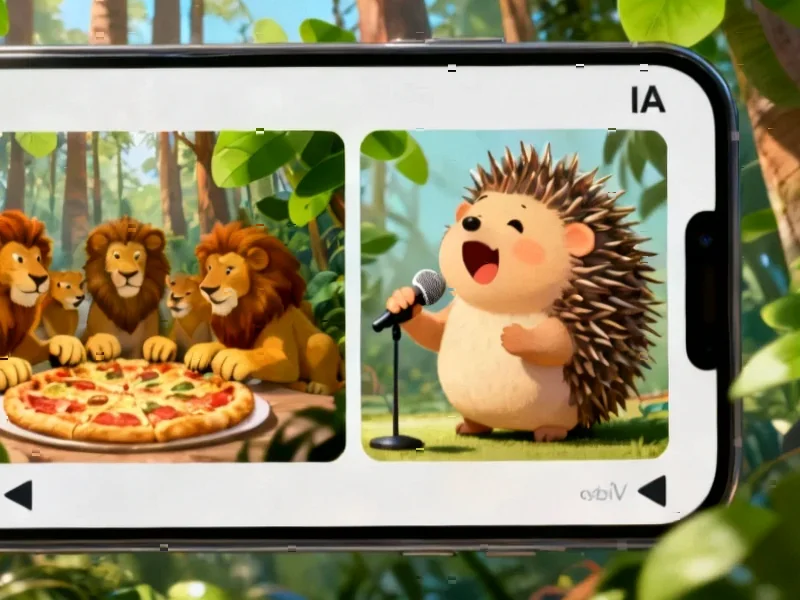According to PYMNTS.com, Meta introduced Vibes in September as a short-form video feed exclusively for AI-generated clips within its Meta AI ecosystem. The platform allows users to create or remix videos using text prompts and existing footage, sharing them across Meta’s apps as part of its broader generative AI integration plan. Meanwhile, Pinterest now automatically applies labels to AI-generated Pins using metadata and image classifiers, while YouTube, TikTok, and X have implemented similar synthetic media labeling requirements. Reddit recently strengthened its tools to detect AI-driven bots following a university experiment that used undisclosed AI accounts in discussions, with Chief Legal Officer Ben Lee calling the practice “deeply wrong” and considering legal action.
Everyone’s Playing Defense Differently
What’s fascinating here is how each platform is approaching this problem based on their core identity. Meta’s going all-in on embracing AI with Vibes – basically creating a separate playground where everything is synthetic by design. They’re not fighting the trend, they’re leaning into it. But here’s the thing: TechCrunch called it “a move no one asked for,” and you’ve got to wonder if users really want another AI-only feed when they’re already complaining about AI content in their main feeds.
Meanwhile, Pinterest is taking the transparency route with their automatic AI labeling system. They’re betting that users will appreciate knowing what’s real versus what’s generated. But the detection methods – metadata and image classifiers – aren’t foolproof. What happens when AI gets good enough to fool the classifiers? We’re already seeing that arms race play out.
Reddit’s Drawing Lines in the Sand
Reddit’s approach might be the most aggressive. They’re not just labeling content – they’re threatening legal action and strengthening moderation tools. When their Chief Legal Officer says an AI experiment was “deeply wrong on both a moral and legal level,” that’s a pretty clear signal about where they stand. They’re treating human conversation as their competitive moat.
And that lawsuit against Perplexity AI over data scraping? That’s part of the same pattern. Reddit’s essentially saying: “Our human-generated content has value, and we’ll protect it.” It’s a business decision as much as an ethical one. After all, if anyone can flood Reddit with convincing AI bots, what makes their platform special?
The Trust Economy Is Here
Kevin Rose’s prediction about “micro communities of trusted users” and “proof of heartbeat” feels increasingly urgent. When he says bots will soon act exactly like humans for next to nothing, he’s not wrong. We’re already there in many cases.
So what does this mean for the average user? Basically, we’re heading toward a split in social media. On one side, you’ll have the AI-content playgrounds where everything might be synthetic. On the other, verified human spaces that charge a premium for authenticity. The middle ground – today’s mainstream social feeds – might become unusable messes of mixed content where you can’t tell what’s real.
The platforms aren’t just fighting fake news anymore. They’re fighting for their very reason to exist. If users can’t trust that they’re interacting with real people, why bother showing up at all?




